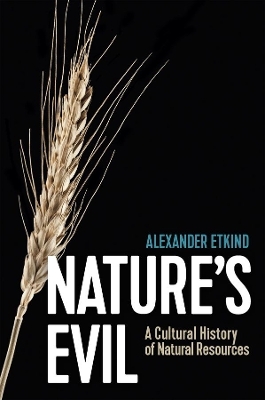
Nature's Evil
A Cultural History of Natural Resources
Seiten
2021
Polity Press (Verlag)
978-1-5095-4758-6 (ISBN)
Polity Press (Verlag)
978-1-5095-4758-6 (ISBN)
This bold and wide-ranging book views the history of humankind through the prism of natural resources – how we acquire them, use them, value them, trade them, exploit them. History needs a cast of characters and in this story the leading actors are peat and hemp, grain and iron, fur and oil, each with its own tale to tell.
The uneven spread of available resources was the prime mover for trade, which in turn led to the accumulation of wealth, the growth of inequality and the proliferation of evil. Different sorts of raw material have different political implications and give rise to different social institutions. When a country switches its reliance from one commodity to another, this often leads to wars and revolutions. But none of these crises go to waste – they all lead to dramatic changes in the relations between matter, labour and the state. Our world is the result of a fragile pact between people and nature.
As we stand on the verge of climate catastrophe, nature has joined us in our struggle to distinguish between good and evil. And since we have failed to change the world, now is the moment to understand how it works.
The uneven spread of available resources was the prime mover for trade, which in turn led to the accumulation of wealth, the growth of inequality and the proliferation of evil. Different sorts of raw material have different political implications and give rise to different social institutions. When a country switches its reliance from one commodity to another, this often leads to wars and revolutions. But none of these crises go to waste – they all lead to dramatic changes in the relations between matter, labour and the state. Our world is the result of a fragile pact between people and nature.
As we stand on the verge of climate catastrophe, nature has joined us in our struggle to distinguish between good and evil. And since we have failed to change the world, now is the moment to understand how it works.
Alexander Etkind is Professor of History at the European University Institute.
Acknowledgements
Introduction
Part 1. History of Matter
Chapter 1. Cry Fire
Chapter 2. Grain’s Way
Chapter 3. The Remains of Foreign Bodies
Chapter 4. Sugar and Spice and All Things Nice
Chapter 5. Fibres
Chapter 6. Metals
Part 2. History of Ideas
Chapter 7. Resources and Commodities
Chapter 8. Resource Projects
Chapter 9. The Mercantile Pump
Chapter 10. The Resources that Failed
Part 3. History of Energy
Chapter 11. Peat
Chapter 12. Coal
Chapter 13. Oil
Conclusion. Leviathan or Gaia
Literature
Notes
| Erscheinungsdatum | 06.09.2021 |
|---|---|
| Reihe/Serie | New Russian Thought |
| Übersetzer | Sara Jolly |
| Verlagsort | Oxford |
| Sprache | englisch |
| Maße | 160 x 231 mm |
| Gewicht | 680 g |
| Themenwelt | Geisteswissenschaften ► Geschichte |
| Naturwissenschaften ► Biologie ► Ökologie / Naturschutz | |
| ISBN-10 | 1-5095-4758-4 / 1509547584 |
| ISBN-13 | 978-1-5095-4758-6 / 9781509547586 |
| Zustand | Neuware |
| Informationen gemäß Produktsicherheitsverordnung (GPSR) | |
| Haben Sie eine Frage zum Produkt? |
Mehr entdecken
aus dem Bereich
aus dem Bereich
Planung · Recht · Verfahren
Buch | Hardcover (2024)
Springer Vieweg (Verlag)
64,99 €
Lehrbuch zu Grundlagen, Technologie und Praxis
Buch | Hardcover (2022)
Hanser (Verlag)
34,99 €


